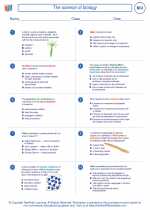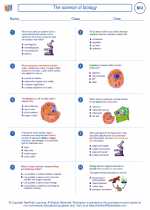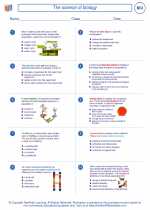What is Yeast?
Yeast is a type of fungus that is unicellular and belongs to the kingdom Fungi. It reproduces asexually by budding and is commonly used in baking and brewing.
Structure of Yeast
Yeast cells are typically oval or spherical in shape. They have a cell wall, cell membrane, and a nucleus. They also contain mitochondria, which are responsible for energy production through cellular respiration.
Reproduction of Yeast
Yeast reproduces asexually by a process called budding. In budding, a small daughter cell forms on the surface of the parent cell and eventually separates to become a new individual.
Uses of Yeast
Yeast is commonly used in baking to leaven bread and other baked goods. It ferments sugars to produce carbon dioxide, which causes the dough to rise. Yeast is also used in brewing to ferment sugars in grains or fruits to produce alcoholic beverages such as beer and wine.
Beneficial and Harmful Effects of Yeast
Yeast has beneficial effects such as its use in food production and its role in scientific research. However, in some cases, yeast can cause infections in humans, such as thrush and yeast infections.
Conclusion
Yeast is a versatile microorganism that plays a crucial role in various industries, particularly in food and beverage production. Its unicellular nature and ability to ferment sugars make it a valuable organism for both scientific research and commercial applications.
[Yeast] Related Worksheets and Study Guides:
.◂Biology Worksheets and Study Guides High School. The science of biology

 Worksheet/Answer key
Worksheet/Answer key
 Worksheet/Answer key
Worksheet/Answer key
